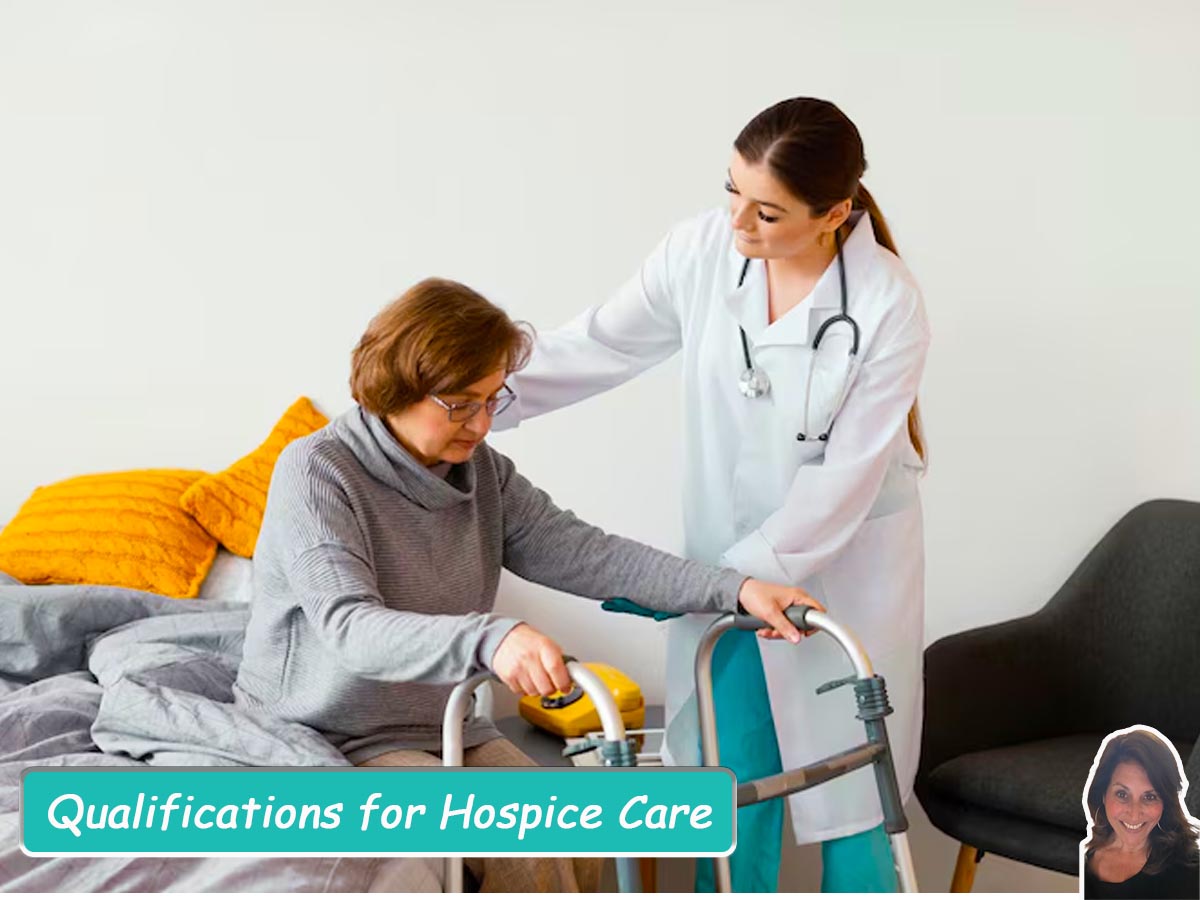Are you wondering whether your loved one qualifies for hospice care under Medicare in San Diego, California? Hospice care can be a blessing during difficult times, but understanding eligibility is crucial. Here’s a comprehensive guide tailored for San Diego residents.
Knowing the eligibility criteria for this service is very important, as it helps in making the right decisions for the patient and family at the right time. Entering hospice care at the right time improves the patient’s quality of life and reduces stress for the family.
Basic Qualifications for Hospice Care
Hospice care is a specialized form of medical care designed to provide comfort and support to individuals facing a terminal illness. To qualify for hospice care under Medicare, certain criteria must be met:
Medicare Part A Coverage
Eligibility for hospice care requires enrollment in Medicare Part A, which covers hospital insurance and inpatient care. This ensures that the individual has access to the necessary services and support provided by Medicare-certified hospice providers.
Certification of Terminal Illness
A physician must certify that the individual has a terminal illness with a prognosis of six months or less to live if the illness runs its normal course. This certification is essential to determine the appropriateness of hospice care and to ensure that the individual receives the necessary support during this critical time.
Life Expectancy of Six Months or Less
The individual must have a life expectancy of six months or less if the terminal illness runs its normal course. This criterion helps in assessing the suitability of hospice care and ensures that individuals receive appropriate care tailored to their specific needs.
Election of Palliative Care Over Curative Treatment
The individual must choose to receive palliative care, which focuses on providing relief from the symptoms and stress of a serious illness, rather than curative treatments aimed at prolonging life. This decision aligns with the goals of hospice care, emphasising comfort and quality of life.
Care Provided by a Medicare-Certified Hospice
Hospice care must be provided by a Medicare-certified hospice organisation. These organisations meet specific standards set by the Centres for Medicare & Medicaid Services (CMS) to ensure the delivery of high-quality care to individuals with terminal illnesses.
Common Terminal Illnesses Covered by Medicare Hospice
Medicare covers hospice for a wide range of conditions, including:
| Condition | ICD-10 Code | Description |
|---|---|---|
| End-stage Heart Disease | I50.84 | Advanced heart failure |
| End-stage Lung Disease | J44.9 | Chronic Obstructive Pulmonary Disease |
| End-stage Renal Disease | N18.6 | Kidney failure |
| End-stage Liver Disease | K72.90 | Hepatic failure |
| Alzheimer’s / Dementia | G30.9 | Memory loss & cognitive decline |
| Cancer (Various Types) | C00-C97 | Terminal-stage cancers |
| Parkinson’s Disease | G20 | Late-stage neurological condition |
| ALS (Amyotrophic Lateral Sclerosis) | G12.21 | Progressive muscle loss |
👉 These conditions must be advanced or in their final stage for hospice eligibility. To get trusted services, visit our hospice care page.
Medical Documentation & Physician Certification
Proper medical documentation and physician certification are essential for Medicare-based hospice care. According to CMS (Centers for Medicare & Medicaid Services) guidelines, two physicians participate in this certification after verifying the patient’s condition.
- Attending Physician – The patient’s primary physician who first confirms that the patient is suffering from a terminal illness.
- Hospice Medical Director – This physician works on behalf of the hospice team and reviews and certifies the patient’s condition.
A valid certification must contain:
- The patient’s life expectancy must be clearly stated as 6 months or less.
- Clinical information that substantiates the patient’s condition.
- Physician’s signature and date.
Recertification Rules
Recertification is required within the first 90 days and before the start of each period thereafter.
After 180 days, the physician or nurse practitioner must meet with the patient in person before each recertification, which helps demonstrate the patient’s ongoing competency. learn more about benefit of hospice care in nursing home
Re-evaluation and Recertification Process
Regular re-evaluation and re-certification are essential to continuing hospice care under Medicare. This process ensures that the patient’s condition has not deteriorated and that they are still eligible for hospice.
Timeframe: 90 days, 90 days, then unlimited 60 days
- First 90 days: The first phase of certification is for 90 days after hospice is started. During this time, the patient’s condition is monitored and regular documentation is required.
- Second 90 days: An extension of another 90 days may be granted if necessary. However, before that, the doctor and hospice team must review the patient’s physical condition and provide re-certification.
- Subsequent 60-day periods: After the first two phases, patients can receive care for an unlimited 60-day period, but a new recertification is required each time.
How is recertification done as required by Medicare?
Physician Certification: If the patient is expected to live six months or less, the physician must confirm this in writing.
Functional decline indicators:
- Weight loss (10% or more in 6 months)
- Need for assistance with mobility or daily activities
- Decline in memory or intellectual ability
- Repeated hospitalizations
Face-to-face Encounter:
A face-to-face encounter between the physician and the patient is mandatory at each recertification after 180 days. This reevaluation process ensures that the patient is still eligible for hospice care and that care should continue.
- Get Top 50 Hospice Care Interview Questions with Expert Answers and improve your skills.
Who Does NOT Qualify for Hospice?
Hospice care is primarily for patients who are at the end of their lives and the goal of treatment is to provide comfort. However, someone may not be eligible for this service unless they meet certain criteria.
- If the patient is not terminally ill
If someone has a long-term illness that is manageable or likely to be cured with treatment, then they will not be eligible for hospice care. For example, diabetes or high blood pressure can be controlled with treatment.
- If the patient is still undergoing treatment
If someone is undergoing chemotherapy, surgery, or any other curative treatment, then he is not suitable for hospice. Hospice means stopping the attempt at cure and focusing only on mental and physical comfort.
- If there is no necessary physical and mental deterioration
For example: severe weight loss, dependence on others for daily activities, repeated hospitalisations, etc. – if these symptoms are not present, then eligibility will not be met according to Medicare rules.
4. Unless it is a Medicare-approved hospice.
Medicare will not cover treatment through a hospice organization that is not Medicare-certified.
Common Myths and Misconceptions About Hospice
Many people have misconceptions about hospice care. Clearing these misconceptions can help patients and families make the right decisions at the right time.
Misconception 1: Hospice means giving up hope
Many people think that getting hospice means stopping all treatment or giving up hope of survival. In reality, hospice care is designed to make life more comfortable and dignified. It reduces pain and suffering and provides peace of mind.
Misconception 2: Only for cancer patients
Hospice is not just for cancer patients. It also applies to those suffering from heart failure, dementia, COPD, and other complex terminal illnesses.
Misconception 3: Hospice is only for the last few days of life
Many people think that hospice care is only for the last few days before death. In fact, hospice can last for 6 months or more, depending on the patient’s condition.
Conclusion
Navigating Qualifications for Hospice Care eligibility in San Diego doesn’t have to be stressful. With the right provider and support, families can focus on what matters most: comfort, dignity, and love. Always consult a medical professional to discuss eligibility in detail.
For more detailed information, visit Medicare’s Hospice Resource Page.
✍️ Author Bio
Lindsay Erin Polis is the founder and CEO of Finding Homecare LLC, a San Diego-based caregiver referral staffing company. With over 15 years in the home health care industry, Lindsay is dedicated to helping families find the right caregiver match, ensuring compassionate and tailored support during challenging times. Her commitment to improving standards of care at home has made her a trusted advocate for families seeking quality home care solutions.


